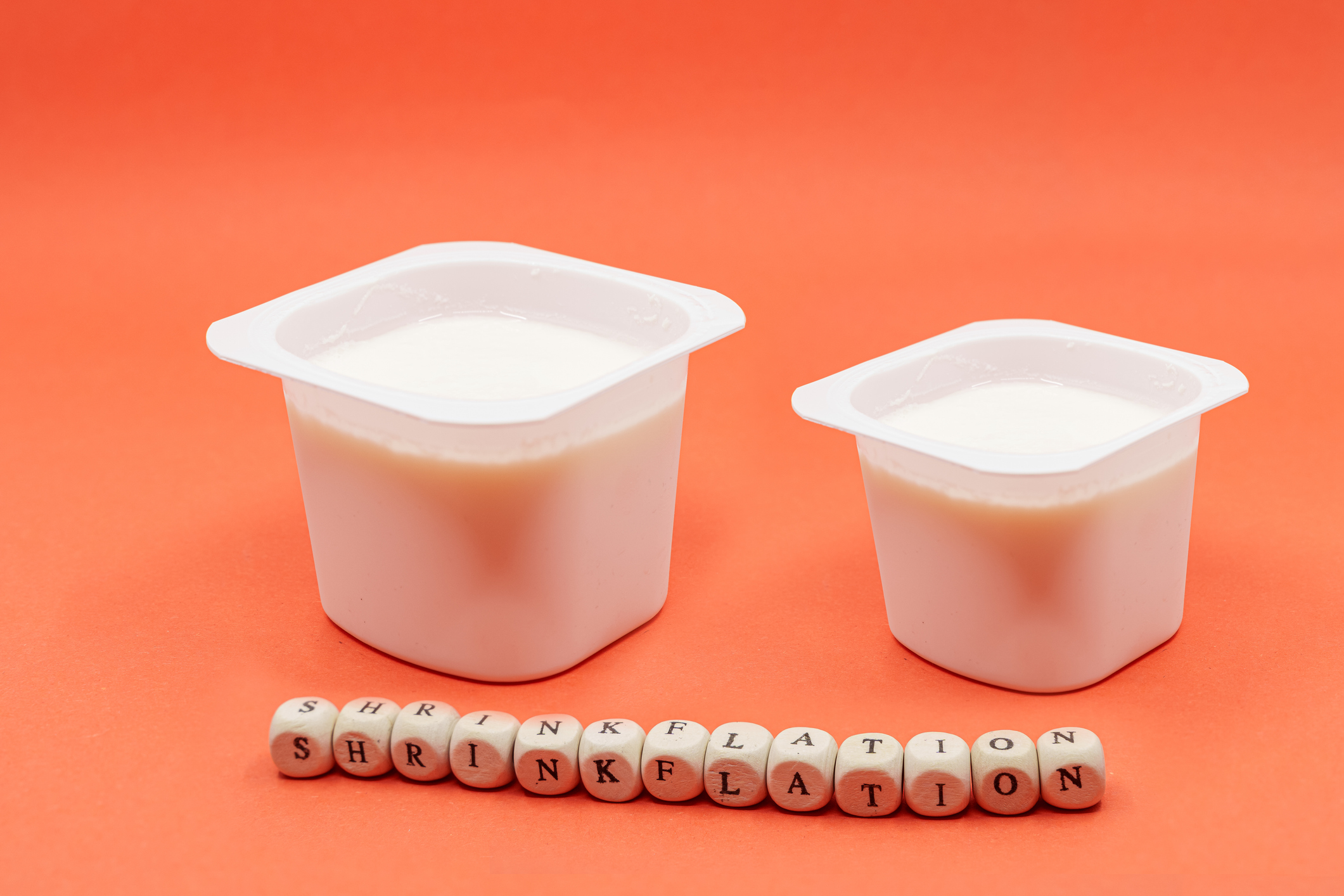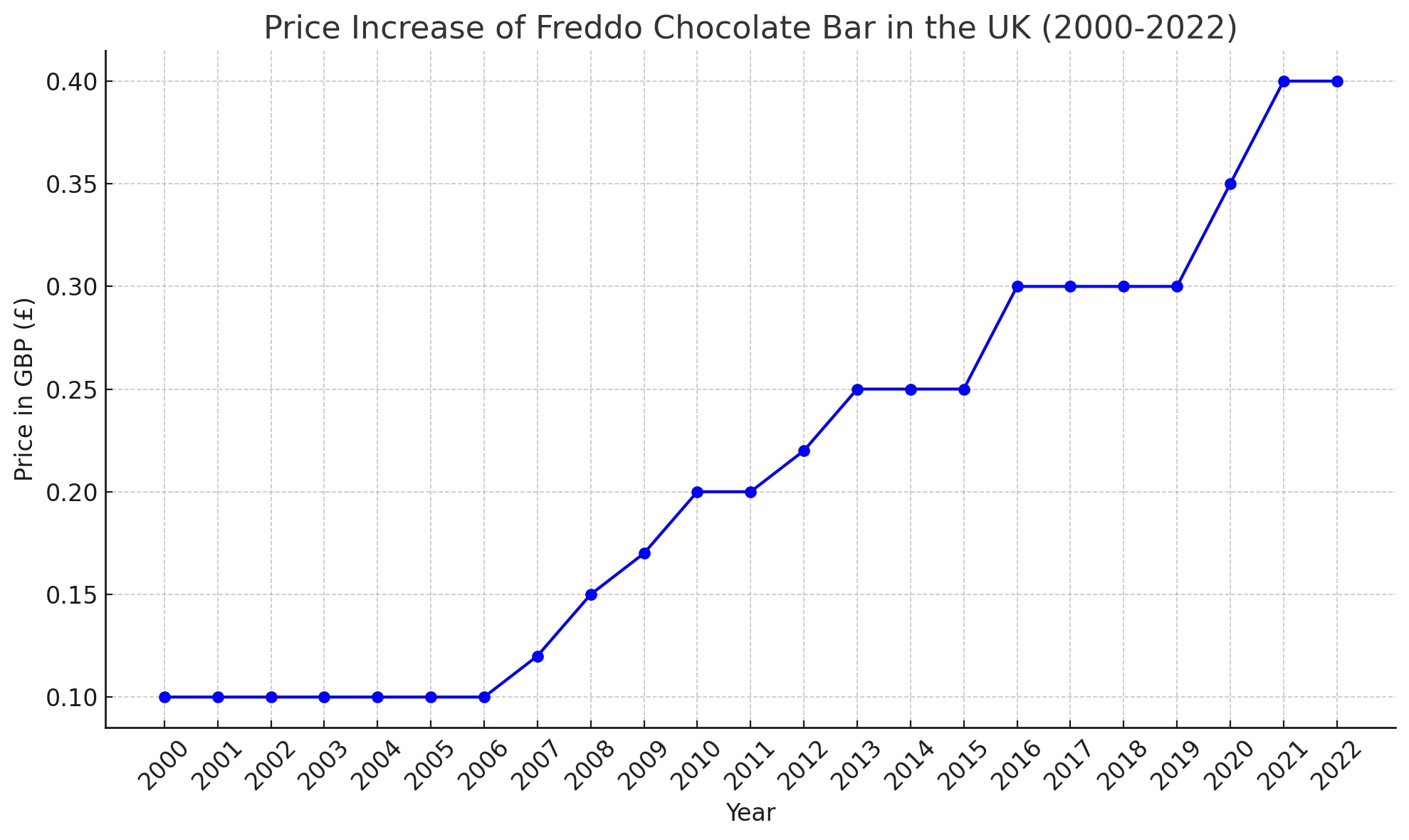Shrinkflation: Which Foods Are Affected?
In this article we talk about shrinkflation and which products have been affected.


In the UK, we're experiencing something quite peculiar and a bit sneaky called 'shrinkflation'. It's a word buzzing in conversations, whether you're chatting with your friends, reading an economist's column, or following business news. What's happening is quite simple but also quite crafty: the things we buy are getting smaller, or there's less of them in a package, but the price? Well, that stays the same or even goes up. This isn't a new trick, but lately, it's been happening more and more around here. Why, you ask? It's a mix of things really - the cost of living is going through the roof, then there's the whole Brexit situation, and let's not forget the challenges brought on by COVID-19. All these have come together to make 'shrinkflation' a hot topic in our everyday lives.
Understanding Shrinkflation
Shrinkflation is a cunning strategy manufacturers use to pass on the cost of inflation to consumers without increasing the price tag. It's a clever little move that manufacturers are pulling off to deal with rising costs instead of bumping up the prices (which we'd all notice immediately). They make our favourite products smaller or put less in a pack but keep the price tag just as it was. It's not as in-your-face as a price increase, but it does the trick for keeping their profits steady. We see it constantly, especially with things we buy regularly, like groceries, cleaning supplies, and toiletries. Think of it like this: you pick up a chocolate bar that seems a bit lighter than before, or you open a bag of crisps and find more air than crisps inside. That's shrinkflation in action!
Which Products Have Been Impacted The Most?
Between 2015 and 2017, the Office of National Statistics found that 206 products had shrunk in size. Investigators at Which? have found numerous examples of well-known products guilty of shrinkflation in recent years. Barclays found that 70% of British consumers noticed shrinkflation during their shopping, mainly crisps, chocolate, and biscuits. Here are some notable examples from the ‘Which?’ investigation:
And it is not just branded products either. The Guardian has found that store-brand and value items from Morrisons and Aldi have also been shrinking their products:
Cadbury’s and the Freddo Index
Do you know how we all have that one thing from childhood that's just iconic? Well, in the UK, it's the Freddo chocolate bar. It's become a legend, not just for its yumminess, but as a surprisingly handy way to keep an eye on inflation. It's simple. The price of a Freddo resonates with us - it takes us back to those carefree days when it was our go-to treat with our pocket money. For many of us, especially the younger folks who've always known Freddo as a little chocolatey indulgence, its changing price is like a mini-story of what's happening in our economy. This method was dubbed the 'Freddo Index.' Every time the cost of a Freddo inches up, it's like a snapshot of the bigger financial picture in the UK, making the complex world of inflation a bit more down-to-earth and something we can all relate to.
Let's rewind to 1994 when the Freddo returned – it was just 10p! Can you believe it? But since then, the cost of this little chocolate bar has been creeping up, sometimes even jumping quite a bit. It's like a chocolate-coated reflection of how living costs and the prices of everyday things have changed compared to what we earn. It's funny how something as simple as the price of a Freddo can give us a snapshot of the bigger economic picture!
Alongside the price rises, Freddos also shrank. In 2007, an individual Freddo was 20g, but it shrank to 18g in 2011, and it went up in price from around 12p to approximately 20p, which is a 10% decrease in size but a 66% rise in price. In 2020, Cadbury’s owner Mondelez also shrank its flagship bar from 200g to 180g despite keeping the same price.

Factors Contributing to Shrinkflation in 2023
Several factors have contributed to the rise of shrinkflation in the UK:
Inflation: Like many countries, the UK experienced a spike in inflation rates in 2023. This increase in the general price level of goods and services put pressure on manufacturers. According to the Office of National Statistics, Food prices are increasing by around 19.2% yearly, a 45-year high. For specifics on how this affects your shop, check out our article on the impact of the cost of living crisis on your weekly shop.
Supply Chain Disruptions: Ongoing disruptions in global supply chains, partly a lingering effect of the COVID-19 pandemic, Brexit and geopolitical tensions, have increased raw materials and transportation costs. These changes can incur additional costs to international businesses, which may be offset through shrinkflation.
Consumer Price Sensitivity: Consumers become more price-sensitive in times of economic hardship. Companies aware of this may be more inclined to reduce product size rather than increase prices directly.
Regulations: UK law requires clear labelling but doesn't necessarily prevent shrinkflation. Companies do not need to inform consumers of weight or size changes, making it easier for companies to adopt this strategy legally.
Impact on Consumers
The impact of shrinkflation on consumers is twofold. Firstly, it leads to a subtle decrease in the value of money, which can add up significantly over time. Secondly, it can contribute to consumer distrust as shoppers feel deceived by brands they previously trusted.
How To Combat Shrinkflation
Shrinkflation can be frustrating, but you can make a real impact by being a savvy shopper and raising your voice. Here are some quick tips for saving during skrinkflation:
Be a Detective in the Aisles: Next time you're shopping, keep an eye on the sizes and quantities of your regular buys. Notice your go-to chocolate bar looking slimmer? That's shrinkflation in action.
Become a Comparison Champ: Start comparing different brands and shops. Sometimes, a switch can give you more bang for your buck. You might discover a new favourite!
Speak Up: Tell the brand if you’re unhappy about your beloved biscuit pack getting lighter! Companies do occasionally listen to their customers. Your feedback could make a real difference.
Get Social: Found a shrinking product? Share it on social media or consumer forums. A little public spotlight can work wonders, and you might find a community of fellow concerned shoppers.
Push for Change: Watch for campaigns or movements pushing for more straightforward packaging laws. Your voice can help make a significant change in how things are labelled and sold.
Use Food Apps: Apps such as TooGoodToGo are great for getting local food that would otherwise be wasted for cheap while also helping the environment. For more information, visit our article on the top apps that save you money and reduce food waste.
Go Big: Consider bulk buying or getting the larger pack sizes often. They're a better value, plus there are fewer trips to the store!
DIY It: If you can make it at home, give it a go. It can be fun; you control what goes in it and how much you make.
Smart Shopping: Stick to your shopping list and budget. It’s easy to grab that tempting offer at the end of the aisle, but is it a good deal? Check out our tips for saving money on groceries to get the most out of your budget.
Loyalty Recheck: Sometimes, loyalty doesn't pay. If your favourite brand keeps downsizing, it might be time to see what else exists.
For more ways to save on your supermarket shop, why not check out our article on which supermarket brand is the cheapest and our piece on how much you can save with rewards schemes?

I started at MyVoucherCodes as a Deal Expert, sourcing top deals and discount codes. I combined these skills with my passion for writing to become an Editor, helping readers save money. As a former student and homeowner, I understand the need to budget and provide shopping tips, especially for vegetarian and vegan diets. I've also written for publications like GamesRadar+, Tom's Guide, Tom's Hardware, The Sun, My Weekly, iPaper and Pick Me Up!
I play video games, write reviews for GameReport in my spare time, and love trying out the latest tech gadgets. I also enjoy DIY projects, having worked in a tool store and renovated my home on a budget.